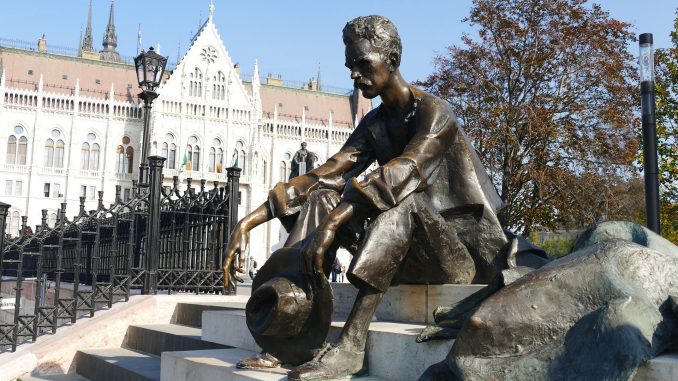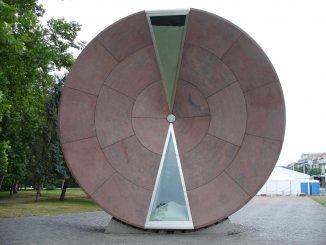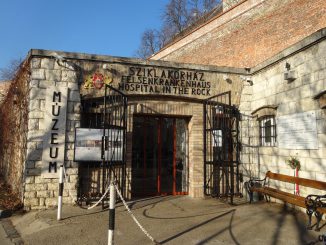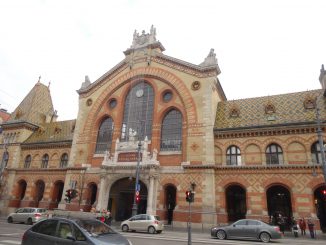
It’s hard to imagine hundreds of people gathered in the terrible cold around the statue of a poet, but that is a thing that has happened in Budapest at the bronze statue of Attila József. For 32 hours and 40 minutes, people of all ages gathered and recited poems to honor the great twentieth century Hungarian poet.
The somber bronze statue of Attila József is known as the Great Poet and sits, somewhat controversially, in Kossuth Square in front of the Hungarian Parliament. Before the statue was placed in its current position it was only state approved artwork and statues of people considered to be followers of Communist ideas that would have been allowed to fill this spot. After several years of debate, the center right government finally permitted the somber work to stay.
Attila József was not well known in his lifetime, but his fame spread rapidly after the WWII. He was involved with the Hungarian Communist Party which was illegal at the time and wrote poems that labeled him as a “proletarian poet.”
His father left for the United States when he was three, his mother raised three children working as a washerwoman, and he was from the lowest class of Hungarian society. Born on April 11, 1905, József’s life, like many at the time was hard and his poetry spoke to the people that suffered like he did. After a life of suffering he committed suicide on December 3, 1937.
József is one the most prominent figures of Hungarian litterature and his poems are taught in Hungarian primary and secondary schools throughout the country. April 11th is designated the Day of Poetry in Hungary in József’s honor.


